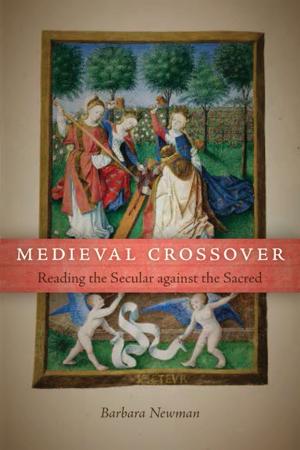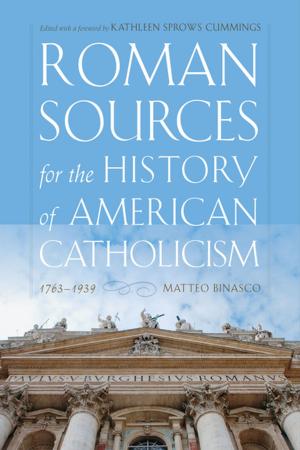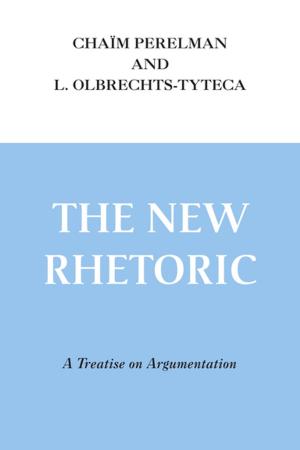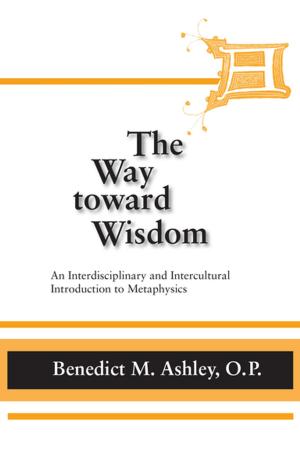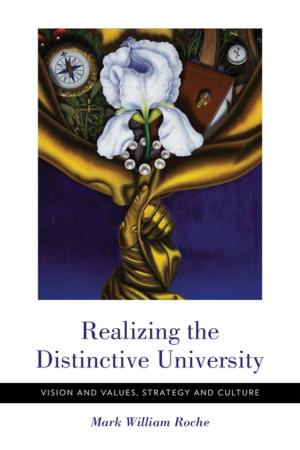René Girard and the Nonviolent God
Nonfiction, Religion & Spirituality, Christianity, Denominations, Anglicanism, Philosophy, Religious, Other Practices| Author: | Scott Cowdell | ISBN: | 9780268104566 |
| Publisher: | University of Notre Dame Press | Publication: | November 30, 2018 |
| Imprint: | University of Notre Dame Press | Language: | English |
| Author: | Scott Cowdell |
| ISBN: | 9780268104566 |
| Publisher: | University of Notre Dame Press |
| Publication: | November 30, 2018 |
| Imprint: | University of Notre Dame Press |
| Language: | English |
In his latest book on the ground-breaking work of René Girard (1923–2015), Scott Cowdell sets out a new perspective on mimetic theory and theology: he develops the proposed connection between Girardian thought and theological dramatic theory in new directions, engaging with issues of evolutionary suffering and divine providence, inclusive Christian uniqueness, God's judgment, nonviolent atonement, and the spiritual life. Cowdell reveals a powerful, illuminating, and life-enhancing synergy between mimetic theory and Christianity at its best.
With religion widely seen as increasingly violent and intransigent, the true Christian emphasis on divine solidarity, mercy, and healing is in danger of being lost. René Girard provides a countervailing voice. He emerges from Cowdell's study not only as a necessary dialogue partner for theology today, but as a global prophet offering hope and challenge in equal measure.
René Girard was a Catholic cultural theorist whose mimetic theory achieved a powerful symbiosis of social science with scripture and theology, yielding a unique perspective on humanity’s origins, violent history, and future prospects. Cowdell maps this synergy, revealing theological themes present from Girard’s earliest writings to the latest, less-familiar publications. He resolves a number of theological challenges to Girard’s work, engaging mimetic theory in fruitful dialogue with key themes, movements, and thinkers in theology today.
Bringing a distinctive Anglican voice to a largely Catholic debate, Cowdell gives an orthodox theological account of Girard’s intellectual achievement, bearing witness to Christianity’s nonviolent God. This book will be of great interest to theologians, seminarians and clergy of all traditions, Girardians, and Christian peace activists.
In his latest book on the ground-breaking work of René Girard (1923–2015), Scott Cowdell sets out a new perspective on mimetic theory and theology: he develops the proposed connection between Girardian thought and theological dramatic theory in new directions, engaging with issues of evolutionary suffering and divine providence, inclusive Christian uniqueness, God's judgment, nonviolent atonement, and the spiritual life. Cowdell reveals a powerful, illuminating, and life-enhancing synergy between mimetic theory and Christianity at its best.
With religion widely seen as increasingly violent and intransigent, the true Christian emphasis on divine solidarity, mercy, and healing is in danger of being lost. René Girard provides a countervailing voice. He emerges from Cowdell's study not only as a necessary dialogue partner for theology today, but as a global prophet offering hope and challenge in equal measure.
René Girard was a Catholic cultural theorist whose mimetic theory achieved a powerful symbiosis of social science with scripture and theology, yielding a unique perspective on humanity’s origins, violent history, and future prospects. Cowdell maps this synergy, revealing theological themes present from Girard’s earliest writings to the latest, less-familiar publications. He resolves a number of theological challenges to Girard’s work, engaging mimetic theory in fruitful dialogue with key themes, movements, and thinkers in theology today.
Bringing a distinctive Anglican voice to a largely Catholic debate, Cowdell gives an orthodox theological account of Girard’s intellectual achievement, bearing witness to Christianity’s nonviolent God. This book will be of great interest to theologians, seminarians and clergy of all traditions, Girardians, and Christian peace activists.




